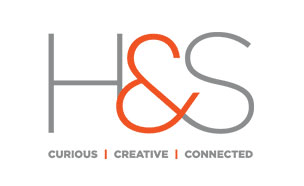 Today’s marketing landscape is seeing a racial awakening from companies, but consumers are demanding equality and proper representation coupled with culturally literate, responsible practices from marketers. With Hispanics fueling U.S. culture shifts and population growth, the Culture Marketing Council: The Voice of Hispanic Marketing is sharpening its focus, re-invigorating its advocacy for Hispanic marketing, and rebranding as the Hispanic Marketing Council (HMC). At a time when intentional approaches via segment marketing have never been more critical, the HMC continues to be the only organization devoted to promoting the critical role of Hispanic marketing, media and specialist firms in today’s marketplace.
Today’s marketing landscape is seeing a racial awakening from companies, but consumers are demanding equality and proper representation coupled with culturally literate, responsible practices from marketers. With Hispanics fueling U.S. culture shifts and population growth, the Culture Marketing Council: The Voice of Hispanic Marketing is sharpening its focus, re-invigorating its advocacy for Hispanic marketing, and rebranding as the Hispanic Marketing Council (HMC). At a time when intentional approaches via segment marketing have never been more critical, the HMC continues to be the only organization devoted to promoting the critical role of Hispanic marketing, media and specialist firms in today’s marketplace.
 Every year, the RAB-Borrell Digital Benchmark report catalogues the health of digital marketing in the U.S. radio industry. Every year, the results are interesting ̶ but none, I would venture, can compete with 2020.
Every year, the RAB-Borrell Digital Benchmark report catalogues the health of digital marketing in the U.S. radio industry. Every year, the results are interesting ̶ but none, I would venture, can compete with 2020.

 In keeping with its commitment to highlight and amplify unheard or marginalized voices, this Thursday, March 18, at 10 p.m. ET and again on Sunday, March 21, at 8 p.m. ET Hemisphere Media Group’s WAPA Televisión and WAPA América will air “Sombras de Una Verdad” (Shadows of a Truth) a documentary that aims to cast light on the silent but pervasive issue of racism in Puerto Rico.
In keeping with its commitment to highlight and amplify unheard or marginalized voices, this Thursday, March 18, at 10 p.m. ET and again on Sunday, March 21, at 8 p.m. ET Hemisphere Media Group’s WAPA Televisión and WAPA América will air “Sombras de Una Verdad” (Shadows of a Truth) a documentary that aims to cast light on the silent but pervasive issue of racism in Puerto Rico. Medalla Light announced the launch of its “The Sound of Home” campaign in select markets in the northwestern United States. For the campaign, Medalla Light captured the unique song of the coqui, a tiny and emblematic amphibian, native to the Caribbean island.
Medalla Light announced the launch of its “The Sound of Home” campaign in select markets in the northwestern United States. For the campaign, Medalla Light captured the unique song of the coqui, a tiny and emblematic amphibian, native to the Caribbean island. One of the most basic tenets of an advertising plan is to deliver the right message to the right prospect. Today, that means going where all viewers are, not just the heaviest concentrations.
One of the most basic tenets of an advertising plan is to deliver the right message to the right prospect. Today, that means going where all viewers are, not just the heaviest concentrations. H&S, a full-service marketing communications companies, announced the promotion of Veronica Rodriguez to Chief Brand Officer, reporting to Elizabeth Harrison, co-founder and Chief Executive Officer.
H&S, a full-service marketing communications companies, announced the promotion of Veronica Rodriguez to Chief Brand Officer, reporting to Elizabeth Harrison, co-founder and Chief Executive Officer. Today’s marketing landscape is seeing a racial awakening from companies, but consumers are demanding equality and proper representation coupled with culturally literate, responsible practices from marketers. With Hispanics fueling U.S. culture shifts and population growth, the Culture Marketing Council: The Voice of Hispanic Marketing is sharpening its focus, re-invigorating its advocacy for Hispanic marketing, and rebranding as the Hispanic Marketing Council (HMC). At a time when intentional approaches via segment marketing have never been more critical, the HMC continues to be the only organization devoted to promoting the critical role of Hispanic marketing, media and specialist firms in today’s marketplace.
Today’s marketing landscape is seeing a racial awakening from companies, but consumers are demanding equality and proper representation coupled with culturally literate, responsible practices from marketers. With Hispanics fueling U.S. culture shifts and population growth, the Culture Marketing Council: The Voice of Hispanic Marketing is sharpening its focus, re-invigorating its advocacy for Hispanic marketing, and rebranding as the Hispanic Marketing Council (HMC). At a time when intentional approaches via segment marketing have never been more critical, the HMC continues to be the only organization devoted to promoting the critical role of Hispanic marketing, media and specialist firms in today’s marketplace. Business leaders Alex and Cathy López Negrete, co-founders of Lopez Negrete Communications in Houston, have been named the 2021 “Mosaic Champions” by the American Advertising Federation (AAF). The AAF’s Mosaic Awards recognize individuals whose commitment to diversity and inclusion is evident through their creative work and organization-wide and industry-wide initiatives.
Business leaders Alex and Cathy López Negrete, co-founders of Lopez Negrete Communications in Houston, have been named the 2021 “Mosaic Champions” by the American Advertising Federation (AAF). The AAF’s Mosaic Awards recognize individuals whose commitment to diversity and inclusion is evident through their creative work and organization-wide and industry-wide initiatives. As new headwinds and market conditions present themselves, marketers across the retail landscape often can be found reshaping growth strategies. Last year — the year that shall not be named — was a case study in on-the-fly strategizing thanks to how the pandemic upended elaborate plans and mainstay messaging. While becoming the largest news story in decades, it also forced most marketers to reassess priorities and reconsider how their brands and products fit into such strange and new consumer lifestyles.
As new headwinds and market conditions present themselves, marketers across the retail landscape often can be found reshaping growth strategies. Last year — the year that shall not be named — was a case study in on-the-fly strategizing thanks to how the pandemic upended elaborate plans and mainstay messaging. While becoming the largest news story in decades, it also forced most marketers to reassess priorities and reconsider how their brands and products fit into such strange and new consumer lifestyles. Nielsen announced that Spanish Broadcasting System (SBS) has entered into a long-term agreement for Nielsen Audio services. This multi-year renewal includes a continuation of their audio audience measurement licenses across all five PPM markets and the diary market of Puerto Rico. This also includes AIRE Radio Network, a national radio platform that creates, distributes, and markets, Spanish language radio programming. Additionally, Nielsen Scarborough and the nationwide dataset are included.
Nielsen announced that Spanish Broadcasting System (SBS) has entered into a long-term agreement for Nielsen Audio services. This multi-year renewal includes a continuation of their audio audience measurement licenses across all five PPM markets and the diary market of Puerto Rico. This also includes AIRE Radio Network, a national radio platform that creates, distributes, and markets, Spanish language radio programming. Additionally, Nielsen Scarborough and the nationwide dataset are included.  What is strategy? Strategy is Future Competitive Advantage. By Rishad Tobaccowala
What is strategy? Strategy is Future Competitive Advantage. By Rishad Tobaccowala Although Black employees comprise 14 percent of all US employees, the Black workforce at the managerial level is just half of that: 7 percent. At senior-manager levels—vice president and senior vice president—it declines further, to 5 and 4 percent, respectively.
Although Black employees comprise 14 percent of all US employees, the Black workforce at the managerial level is just half of that: 7 percent. At senior-manager levels—vice president and senior vice president—it declines further, to 5 and 4 percent, respectively. Univision’s TUDN will carry live all 15 matches of the 2020 Concacaf Men’s Olympic Qualifying from Guadalajara, Mexico. The qualifiers kick off on March 18 with the clash between the U.S. and Costa Rica at 5:30 p.m. ET on TUDN.
Univision’s TUDN will carry live all 15 matches of the 2020 Concacaf Men’s Olympic Qualifying from Guadalajara, Mexico. The qualifiers kick off on March 18 with the clash between the U.S. and Costa Rica at 5:30 p.m. ET on TUDN. The prevalence of remote work because of the pandemic* varies significantly across US states. Workers in their prime (aged 25 to 54) in professional and office jobs on the West coast and in the Northeast were much more likely to work from home.
The prevalence of remote work because of the pandemic* varies significantly across US states. Workers in their prime (aged 25 to 54) in professional and office jobs on the West coast and in the Northeast were much more likely to work from home. Agencies inside Walgreens and The Hershey Co. are expanding their roles by leveraging first-party data
Agencies inside Walgreens and The Hershey Co. are expanding their roles by leveraging first-party data H Code released the 2021 Hispanic Digital Fact Pack. Derived from insights and metrics provided by H Code’s proprietary Intelligence Center.
H Code released the 2021 Hispanic Digital Fact Pack. Derived from insights and metrics provided by H Code’s proprietary Intelligence Center. Welcome to 2021 and the latest BUSINESS edition of Hispanicize Hangout featuring three all-star guests returning for one very special episode. Elizabeth Campbell, Senior Director Of Cultural Engagement at McDonald’s Corporation, Esperanza Teasdale, VP and General Manager of PepsiCo Beverages North America and the always insightful Luis Miguel Messianu, Creative Chairman and CEO of ALMA.
Welcome to 2021 and the latest BUSINESS edition of Hispanicize Hangout featuring three all-star guests returning for one very special episode. Elizabeth Campbell, Senior Director Of Cultural Engagement at McDonald’s Corporation, Esperanza Teasdale, VP and General Manager of PepsiCo Beverages North America and the always insightful Luis Miguel Messianu, Creative Chairman and CEO of ALMA.  When you reach out to a prospective client, you have no idea if they will pick up or if you’ll be sent to voicemail. (Spoiler: usually, it’s voicemail). The best agency new business pros are ready for either scenario. But if you’re not, this post will help. by Mark Duval – The Duval Partnership
When you reach out to a prospective client, you have no idea if they will pick up or if you’ll be sent to voicemail. (Spoiler: usually, it’s voicemail). The best agency new business pros are ready for either scenario. But if you’re not, this post will help. by Mark Duval – The Duval Partnership
























